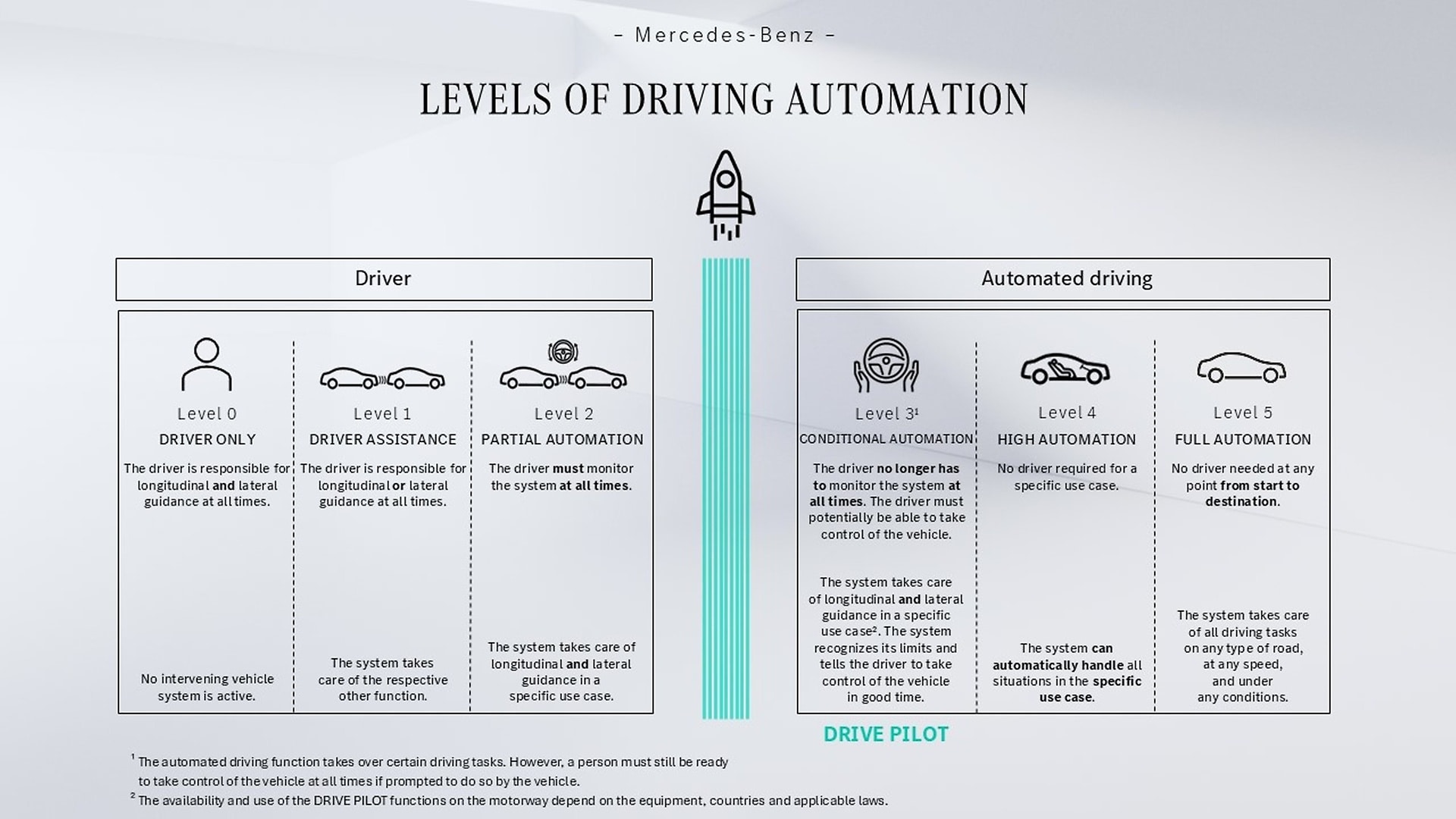Automated vehicles not only give the person behind the wheel more freedom. “Automated driving systems can further improve road safety and reduce accidents”, says Olaf Schick. However, if an accident occurs with one of these vehicles, the question of liability arises. In some countries, including Germany, the legal situation is clear: There is a combination of driver, holder and manufacturer liability. Up to and including Level 2 of automated driving, the person at the wheel is responsible for the driving task and compliance with traffic regulations. In SAE Level 3 conditionally automated driving, the person at the wheel may turn away from the driving task under certain conditions while the system is working within the defined functional range. However, they continue to have duties on public roads even during conditionally automated driving operation and must take over the driving task again at any time if the system requests them to do so.
In the event of a road accident, liability depends on the individual case: If the driver fails to fulfil their duty to take due care and causes an accident as a result, they and the holder are liable for the resulting damage. In addition, the manufacturer may be liable for damage caused by a product defect within the scope of product and manufacturer liability. This applies to both automated and conventional vehicles.
For Mercedes-Benz as a manufacturer, vehicles taking over the task of driving means the following: The implementation of traffic regulations is part of the system design. For this purpose, the road traffic regulations are translated into requirements for the software. Experts from the fields of development, law, ethics, product safety and certification work together on an interdisciplinary basis from the outset and consider technical, legal, regulatory and ethical aspects in equal measure. Their aim is to develop safe and reliable automated systems for all road users.
,xPosition=0,yPosition=0.5)


,xPosition=0.8,yPosition=0)